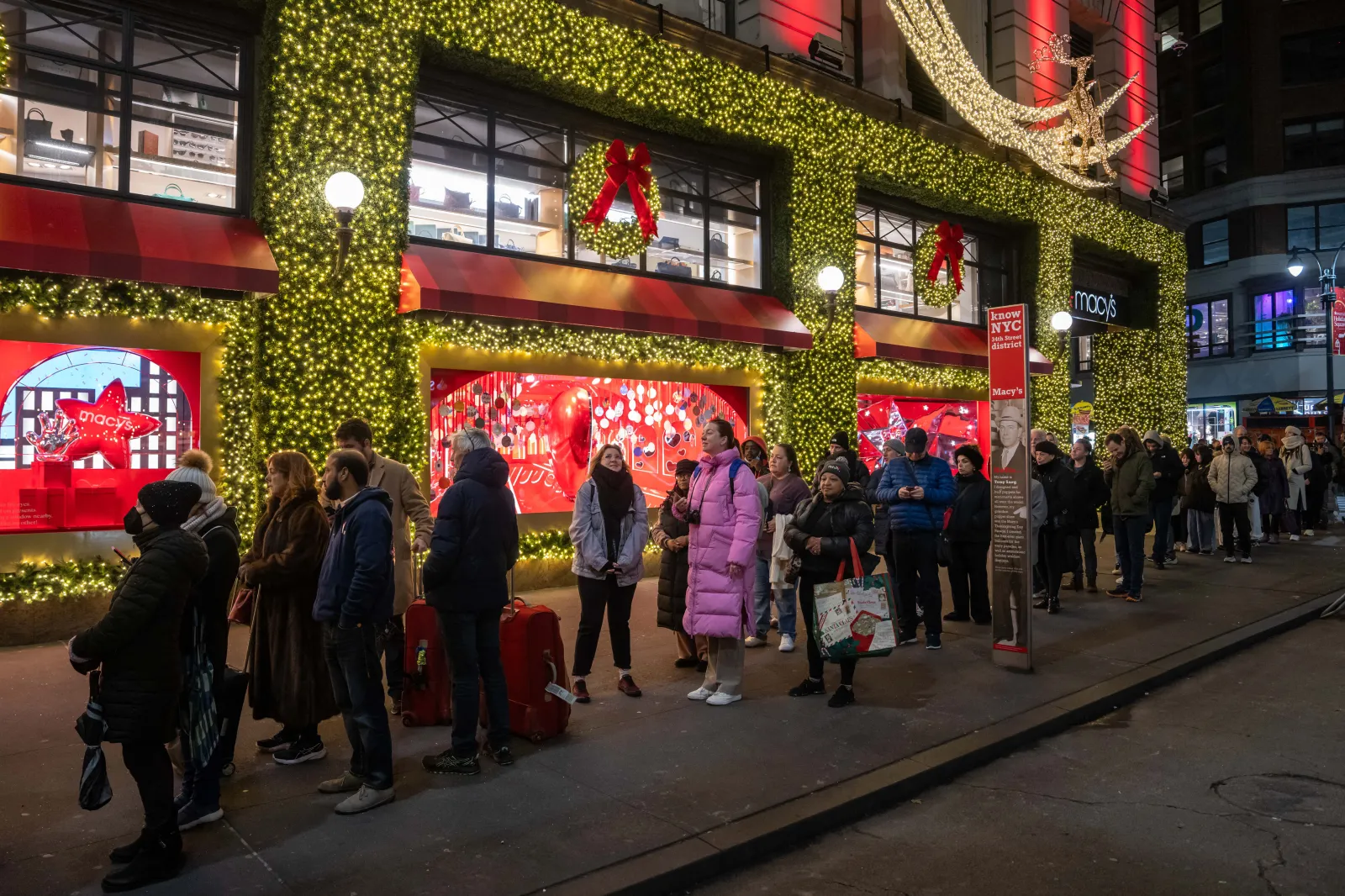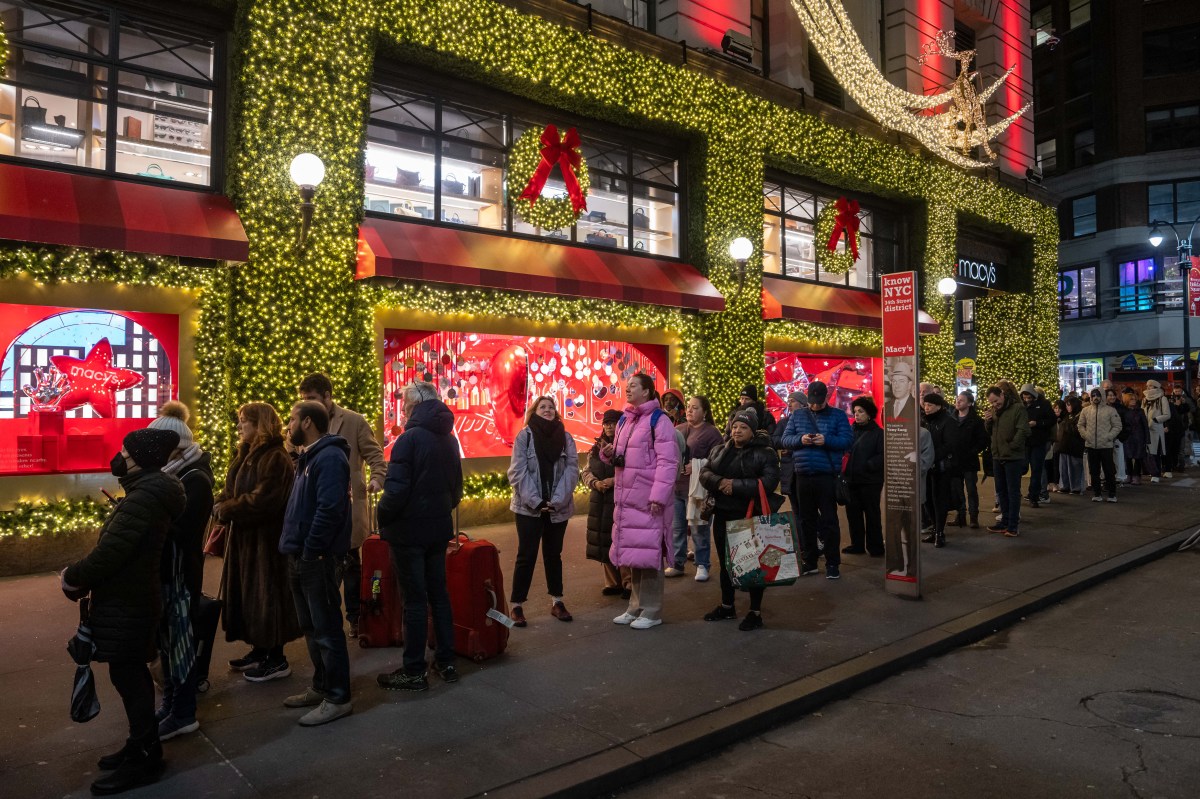Many Black Friday shoppers are expected to rein in their spending for the first time in years, according to a new survey, as inflation and affordability issues take their toll on holiday budgets.
Consumers surveyed by Deloitte plan to spend an average of $622 during the Black Friday-to-Cyber Monday period, marking a 4.3 percent drop from 2024, and breaking the four-year streak of consecutive jumps since tracking began in 2020.
“More consumers plan to shop during the Black Friday-Cyber Monday week,” Deloitte wrote in a press release, “but cost pressures and financial constraints are expected to bring spending down.”
Why It Matters
America’s retailers and in particular its smaller businesses are bracing for what is expected to be a more restrained holiday shopping season in 2025, with affordability concerns giving rise to what experts have dubbed more “price-conscious” consumers, and leading to expectations of slower spending and weaker profits.
While consumer spending is expected to remained largely resilient for the remainder of 2025—the National Retail Federation forecasting a record $1 trillion for November and December—analysts note that the numbers are being kept afloat by some higher-income shoppers, and that less affluent Americans will curb discretionary purchases as household budgets grow tighter.
What To Know
According to Deloitte’s report, based on a survey of 1,200 Americans conducted in October, 82 percent plan to shop during the Black Friday-Cyber Monday period, up from 79 percent in 2024.
The firm found that cutbacks in spending will occur among both the lowest- and highest-income groups. Those making under $50,000 and those making $200,000 or more plan on spending 12 percent and 18 percent less, respectively, while those making between $100,000 and $199,000 annually plan to spend around 5 percent more. Among shoppers who expect to cut back, the most cited reasons were the higher cost of living (69 percent) and tighter finances (43 percent).
Meanwhile, 64 percent of shoppers said they plan to use financing options to stretch Black Friday budgets. This is in line with the findings of a recent survey by the digital payments firm, PayPal, which revealed that half of all shoppers will rely on buy now, pay later loans to assist in their seasonal shopping.
And Deloitte’s top-line figure on softer spending was given added support by the latest retail sales report from the Commerce Department, released Tuesday. Retail sales rose 0.2 percent on a monthly basis in September, following a 0.6 percent increase in August, below consensus forecasts of a 0.4 percent gain.

“Americans are spending thoughtfully and somewhat unevenly,” said Bankrate senior industry analyst Ted Rossman. “While the overall numbers continue to grow, we see considerable evidence that upper-income households are propping up the overall statistics.”
Michael Pearce, deputy chief U.S. economist at Oxford Economics, similarly noted the “solid gains” made in discretionary categories as evidence that overall spending is being “supported by higher-income consumers.”
What People Are Saying
Natalie Martini, vice chair and U.S. retail and consumer products sector leader at Deloitte, said: “This season, consumers are eager to find the best deals to wrap up their holiday shopping. They have made their gift lists and are checking Black Friday-Cyber Monday promotions to stretch their budgets.
“While we expect shoppers to plan to pull back on spending, we also anticipate strong participation throughout the holiday week, with many planning to blend the convenience of online shopping with the energy of the in-store experience. This highlights the importance for retailers to deliver a smooth, connected experience no matter where people choose to spend their holiday dollars.”
Bankrate senior industry analyst Ted Rossman told Newsweek: “I’m optimistic about the holiday shopping season. Consumers are still spending (despite low sentiment) and retailers are offering solid discounts. Black Friday has looked a bit different in recent years—now it’s more the midpoint of the holiday shopping season rather than the beginning, and it’s leaning more into e-commerce rather than waiting in line at 4 a.m.
“I expect respectable sales growth this holiday season. Tariffs haven’t affected prices nearly as much as many feared (at least to this point). A consumer spending pullback is more likely next year. At least through the holidays, Americans will be spending.”
Michael Pearce, deputy chief U.S. economist at Oxford Economics, in comments shared with Newsweek following Tuesday’s retail sales data, said: “The slowdown in retail sales growth was largely due to an outright decline in non-store sales, which is likely a seasonal adjustment issue linked to the timing of sales by major online retailers. The solid gains in food services spending highlights that discretionary spending is still in strong shape, supported by higher-income consumers.”
What Happens Next
Despite Deloitte’s projections for Black Friday, many analysts nevertheless expect a strong 2025 holiday season, with Oxford Economics forecasting “the strongest spending growth in four years,” according to Pearce.

